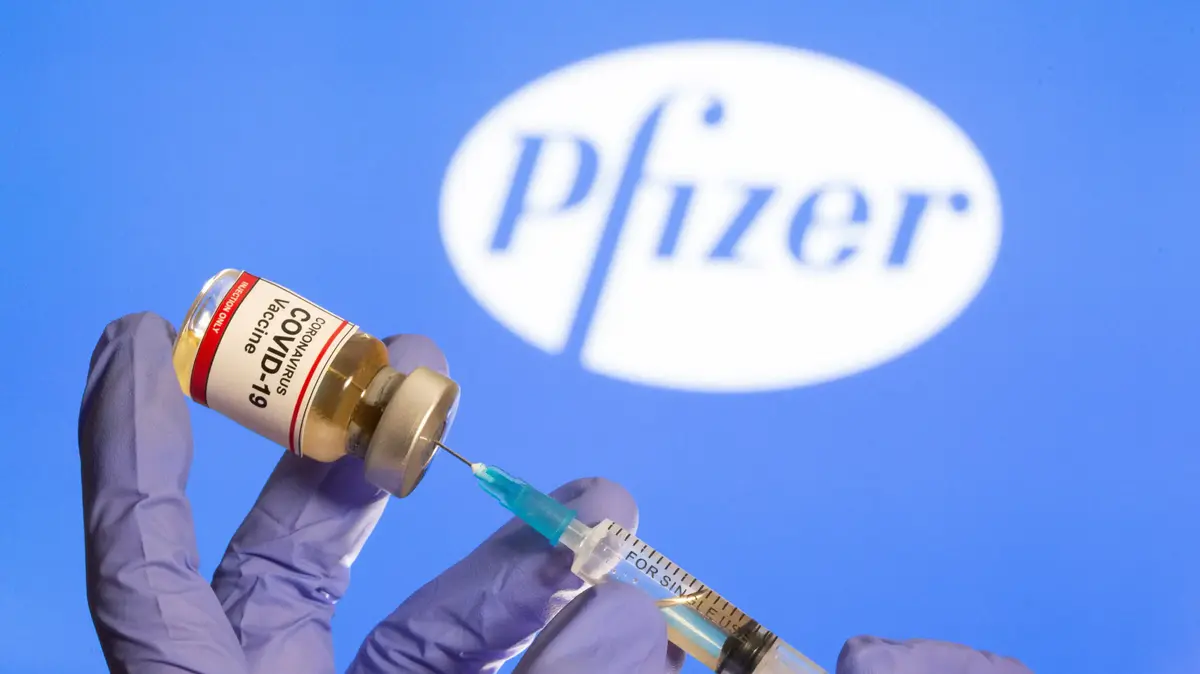Enlarge image
AstraZeneca vaccine arrives in Goma, Congo in April 2021
Photo: Guerchom Ndebo / Getty Images
When the vaccination campaign in Germany slowly picked up speed in the spring, hardly a day went by without reports of the AstraZeneca vaccine.
However, mostly in a negative context.
There were doubts about the effectiveness in certain age groups, disputes between the EU Commission and the British manufacturer because of delivery bottlenecks and headlines because of the risk of rare sinus vein thromboses.
In the current booster campaign, AstraZeneca practically no longer plays a role in this country.
While western industrialized nations mainly rely on vaccines from Biontech / Pfizer and Moderna, experts point to the high status of AstraZeneca for countries with low and middle income.
The vaccine helps to meet the great need in the rest of the world.
"The AstraZeneca vaccine was a lifesaver," Mohga Kamal-Yanni told the Wall Street Journal.
The expert on global health policy advises the People's Vaccine Alliance.
A coalition of health and human rights organizations, including Amnesty International and Oxfam, which advocate fair access to medicines.
The omicron variant has shown the importance of supplying poorer regions of the world with vaccine in order to get the pandemic under control.
1.6 billion cans of AstraZeneca for poorer countries
According to the WSJ, AstraZeneca's vaccine reaches more people in low- and middle-income countries than any other Western-made vaccine.
According to its own information, AstraZeneca had shipped almost 2.3 billion cans worldwide by mid-December.
At Biontech / Pfizer it was almost 2.5 billion doses.
More than 2.4 billion doses of the vaccine from the Chinese company Sinovac were delivered.
According to the "WSJ", the International Monetary Fund (IMF) estimates that the countries with low and middle income had received a total of 3.25 billion vaccines by December 11th.
About half of those - roughly 1.6 billion doses - were vaccinations from AstraZeneca, according to data from the IMF and Airfinity, a science and health data company.
That's a larger proportion than the doses of Sinopharm, Sinovac, and Biontech / Pfizer combined, as the same data shows.
The advantage of AstraZeneca: The vaccine does not have to be stored ultra-cold like the serums from Biontech / Pfizer and Moderna, so that it is easier to distribute in many countries.
From the outset, AstraZeneca also pursued the goal of ensuring equal access to its vaccine through production partnerships around the world.
No focus on profit during the pandemic
AstraZeneca has begun to demand profit-oriented prices for some buyers, writes the "WSJ".
The company still sells the cans to low-income countries at cost.
From January to September, AstraZeneca had sales of 2.2 billion dollars with the vaccine and made a profit with the vaccine for the first time in the third quarter.
But compared to the profits at Biontech / Pfizer and Moderna, that is tiny.
According to "WSJ", AstraZeneca originally wanted to deliver three billion cans this year and sell them without profit as long as the pandemic continues.
"If you add up the benefits to humanity, you will find that the vaccine is doing pretty well in terms of diseases and deaths prevented," John Bell told the WSJ.
He is a senior scientist at Oxford.
A team from the UK university developed the vaccine in collaboration with the pharmaceutical company AstraZeneca.
Poorer countries get what industrialized countries sort out
Initially, the vaccine was used extensively in Great Britain.
But in the meantime the United Kingdom has also removed AstraZeneca almost entirely from the booster campaign.
Government advisors chose Biontech / Pfizer and Moderna as booster vaccines because they believed that mRNA vaccines were likely to offer the best additional protection.
According to information from the »WSJ«, concerns about coagulation disorders also played a role.
This is because very rare, but sometimes fatal, blood clots have been linked to the vaccine.
This is also the reason why many richer countries have massively restricted the use of AstraZeneca cans.
The vaccine is not even approved in the US.
According to "WSJ," AstraZeneca had difficulty compiling all of the necessary data for regulators and has repeatedly missed its own deadlines for applying for regulatory approval of the syringe for use in the United States.
All of this contributed to a wave of AstraZeneca vaccine donations from the US, Canada, Australia and Western Europe to poorer countries.
AstraZeneca has also gradually got its global manufacturing problems under control.
By far the largest manufacturer in the group’s partnership network, the Indian Serum Institute, claims to have supplied more than 1.3 billion doses of the vaccine to around 70 countries and can produce up to 250 million doses per month.
New studies give hope
With regard to the fight against the Omikron variant, poorer countries will probably have to rely on the vaccines from AstraZeneca.
Experts are already warning that wealthier countries could buy up the coveted vaccine doses from Biontech / Pfizer and Moderna for their booster campaigns, thereby exacerbating the problem of low vaccination rates in other nations.
For those countries that will then have to resort to AstraZeneca, there is at least one hopeful message: AstraZeneca and researchers from Oxford recently announced that laboratory studies have shown that a third vaccination with the vaccine increases antibody protection against omicrons to the level of two doses .
The studies, which have not yet been peer-reviewed, may support the use of the vaccine as a booster.
mmq














